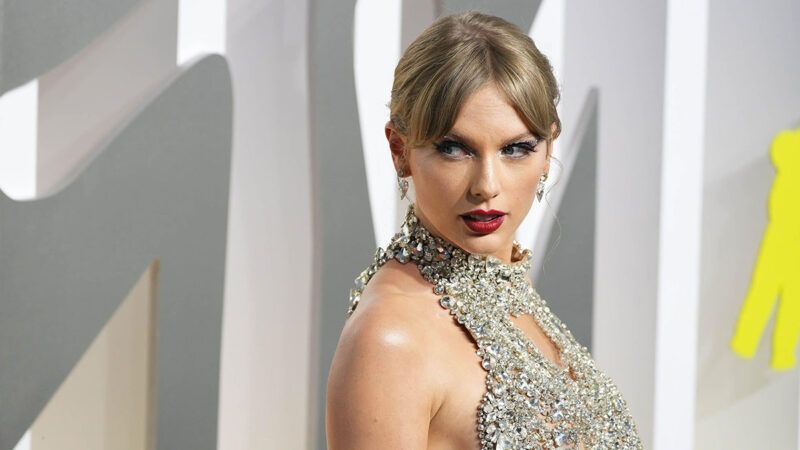Taylor Swift, Junk Fees, and the 'Happy Meal Fallacy'
Thank Swifties, not Joe Biden, for Ticketmaster's consumer-friendly pricing policy.

When America's largest ticket retailer announced plans to adjust its pricing structure, President Joe Biden was quick to claim credit. But concertgoers really should thank Taylor Swift and her fans.
In June, Ticketmaster, the massive ticket-selling arm of global concert promoter Live Nation, said its website would start displaying full prices upfront on each event page. Those prices include venue fees and processing costs that used to be added later in the purchasing process (but still well before customers paid).
The company had been under pressure from Swifties after a series of mishaps involving ticket sales for Swift's much-in-demand Eras Tour. Although those problems were not caused by the supposedly hidden fees, the latter also became a target of customer outrage.
The promised price transparency is nice, of course, and smart marketing. But according to Biden, Ticketmaster's decision validates his ongoing war on the "junk fees" charged by a wide range of businesses, including airlines, hotels, and banks. Biden claims the changes he wants would "bring down costs for working Americans" and create "space for competition."
The president is wrong on both scores. Ticketmaster, artists like Swift, and the venues that host concerts will not choose to make less money, and forcing companies to bundle costs will undermine competition in other parts of the market.
In this year's State of the Union address, for example, Biden said he wanted to prevent airlines from charging travelers fees to choose specific seats. "Making airlines show you the full ticket price upfront," he averred, will make it easier for Americans to "afford that family trip." But the kind of transparency Biden is demanding does not reduce costs.
Consider the budget airlines that currently offer low fares but charge additional fees for picking seats, bringing bags (sometimes even carry-on luggage), and getting in-flight snacks. If those airlines have to bundle all those costs together for every flyer, passengers who want to travel light, are willing to sit anywhere, and can go 90 minutes without a snack will have to pay more so that other travelers can avoid paying for those things à la carte.
The second group won't pay less; they'll just pay it all upfront. Meanwhile, a low-cost option will disappear for the first group. Instead of being able to evaluate tradeoffs—should I save money even if that means I don't get to sit with my traveling companions?—consumers would face a market with fewer choices.
Biden's scheme also would leave airlines less space to compete with each other. Southwest, for example, loudly advertises that "bags fly free" on its planes. Ban baggage fees, and that market advantage vanishes.
Biden's war on fees is a version of what libertarian economist Alex Tabarrok has termed the "Happy Meal Fallacy." Imagine a typical fast-food joint with combo meals—fries and sodas alongside burgers—that also allows consumers to buy individual items from the menu. Some might choose the combo, while others might want or be able to afford just fries or a burger.
Now imagine an enterprising politician getting involved. "A burger alone is not sufficient," he argues, introducing a bill mandating that all burgers come with fries and a drink.
The burger chain would still have to make money, so it would not start charging for a combo meal what it once charged for a single à la carte item. Customers who could afford only a burger would thus be priced out of the market. This simple principle is easy to understand when applied to low-cost items like burgers but can be applied to more complex scenarios too.
The Biden administration is pushing this misguided goal in a variety of ways. The Consumer Financial Protection Bureau (CFPB) and the Federal Trade Commission (FTC) are cracking down on overdraft fees that banks charge in order to offer services like free checking accounts. The CFPB also has proposed a cap on the fees credit card companies can charge for unpaid bills, which is likely to result in higher interest rates for all credit card users. And the FTC is drafting new rules that would target "unnecessary charges for worthless, free, or fake products or services" even though it already has the authority to go after businesses engaged in outright fraud.
It should be consumers, not bureaucrats, who decide whether they are getting enough value for their money. If not, they can choose to spend differently. As economists know all too well, mandatory all-in-one pricing might save some consumers a little frustration, but with hidden costs for others who are forced to buy products or services they don't want or need.


Show Comments (22)